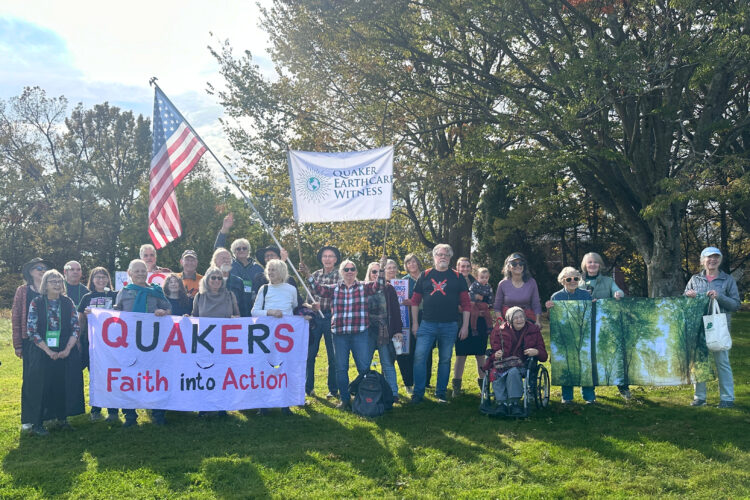Our Own Worst Enemies: An Apostolic Exhortation on the Climate Crisis
by Shelley Tanenbaum
In 2015, the Pope’s message to the world, Laudato Si, amazed many of us, myself included, with his blunt comments about people, economics, and climate change. (QuakerEarthcare.org/Laudato-Si) He called for a radical restructuring of how we relate to each other and to the more-than-human world. This fall, 8 years later, his message to the world, Laudato Deum, stated in even blunter terms how much humans are falling short of living up to the goals of caring for all creatures.
Calling for courageous action at the Climate Conference (COP 28) in the UAE, the Pope concludes his message for humanity with these words: “‘Praise God’ is the title of this letter. For when human beings claim to take God’s place, they become their own worst enemies.” For those with the resources to use it, technology has given them “an impressive dominance over the whole of humanity and the entire world. Never has humanity had such power over itself, yet nothing ensures that it will be used wisely, particularly when we consider how it is currently being used.”
To former activists who are constantly critical of every effort to change the climate status quo, the Pope says, “To say that there is nothing to hope for would be suicidal, for it would mean exposing all humanity, especially the poorest, to the worst impacts of climate change.” To the most affluent, he says the “richer percentage of the planet contaminates more than the poorest 50% of the total world population.”
To our predicament, he repeats his convictions that “everything is connected” and “no one is saved alone”. He continues, “We are part of nature, included in it and thus in constant interaction with it.” I started questioning if this was the Pope or an indigenous elder describing their worldview when I read these words.
To regain a sense of harmony with nature, he recommends against our current form of economics that primarily uses financial gain as a guidepost. Instead, he calls on grassroots activism to take on the current power structure of elites. He calls on every family to “realize that the future of their children is at stake.” He calls on the powerful to consider, “What would induce anyone, at this stage, to hold on to power, only to be remembered for their inability to take action when it was urgent and necessary to do so?”
This past March, Pope Francis repudiated the ‘Doctrine of Discovery,’ a set of Papal letters that justified brutal Christian colonization of indigenous cultures and lands. Many of us within QEW had been part of a global movement calling on the Vatican to do so. Laudato Si, Laudato Deum, and the Repudiation are beautiful words. What can we do to turn those words into action, to build a grassroots Earthcare movement, to rematriate land, and to truly care for our world?

